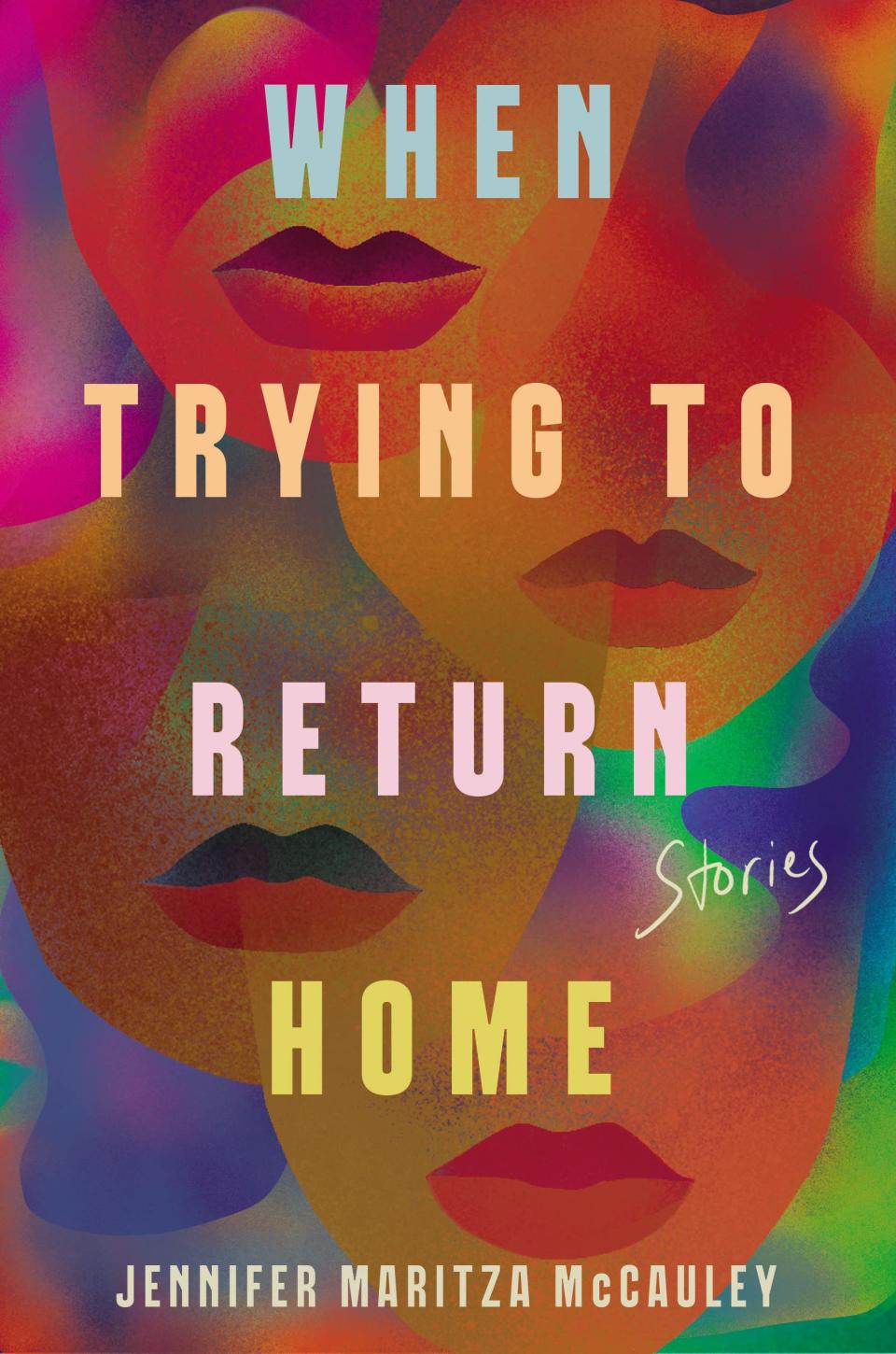How MU alum Jennifer Maritza McCauley carries 'Home' back to Columbia and Unbound festival

Pittsburgh neighborhoods traversed at unsettling speed and promises made by planes pointing from New York toward Puerto Rico. Florida pastels and deep, haunting Louisiana blues.
If you simply plotted her stories across a map, Jennifer Maritza McCauley's fiction debut "When Trying to Return Home" might resemble a literary travelogue, collected places where people keep making messes of their lives.
A close read reveals wholly different motion, crossing distances of small measure that might as well be half a world away. Point A for McCauley's characters is whatever situation they're living through, Point B an elusive sense of home.
And the lines between the two are anything but straight.
The journeys these characters take resemble the author's own. McCauley has worked her way across the country, earning her Ph.D. here at the University of Missouri, publishing the remarkable poetry collection "Scar On/Scar Off." Now teaching at the University of Houston-Clear Lake, she had to live the truth of her book's epigraph before learning it.
There, her readers encounter the greatest American writer, James Baldwin, who noted that "Perhaps home is not a place but simply an irrevocable condition."
In this way, McCauley will carry both "When Trying to Return Home," the book, and her belief in home as an internal destination back to Columbia for the Unbound Book Festival, which begins Thursday and runs through Sunday.
More: Andrew Yoon brings the poetry of taking chances to Unbound Book Festival
A homecoming, from start to finish
Every short story within "When Trying to Return Home" exists as a staggering, soulful blow. But the story of the book itself, in many ways, is told by the pieces she wrote first and last.
McCauley penned "Last Saints" in 2009. Stemming from a meditation on how we transmit and preserve narrative, from fairly tales to Biblical accounts, the story would undergo a number of revisions — all while opening doors for McCauley.
"That story kept getting me into programs," she said, before saying she practically knows it by heart.
The collection gathered its words and steam across McCauley's various times and places. The final puzzle piece revealed itself after she graduated from MU, while teaching from Florida.
McCauley testifies to experiencing something more profound than mere writer's block, something like a writer's brick wall. Questions of identity and discovery, of mental and spiritual health, provoked a crisis of creative confidence. One day while grading papers, her home Wi-Fi flickered out.
Left with indeterminate time on her hands, McCauley felt drawn to the last thing she wanted to do.
"I felt this god-like voice telling me, 'Just write,'" she said.
Overcoming her own self-protest, she started what would become the book's last story. Seeing something in it, she manually turned the Wi-Fi off at a similar hour each day until placing the final period.
Wrestling with that story brought an epiphany which resembles Baldwin's words. McCauley reconciled circumstances and cities, present-tense people and past experience to find a home within herself, one that travels wherever she does.
"It’s an emotional state for me. It’s not necessarily a place," she said.
Beginning to edit her collection of stories with this truth in mind, the work came into its own.
How McCauley's stories belong to each other

Readers, both anonymous and august, recognize the internal logic of McCauley's book. The New York Times lent it the Editors' Choice label. And Kirkus Reviews testified "the stories hang together in surprising ways."
"Individually, they are each admiringly gutsy and tender, with flashes of poetry. ... What can’t McCauley do?" the Kirkus piece concluded.
The book opens with "Torsion," a mother-daughter odyssey that poses sobering questions: Is blood thicker than the law? Is love alone always enough? Is it possible to adopt the posture of a saint yet sin terribly against those you hold close?
That last question comes into relief as the story's narrator, an adult daughter conscripted into a dangerous act for her family's sake, considers the way her mother loves.
"The thing is, Mama never loved neat. Her love was spread out, sloppy," McCauley writes. "It slathered everyone in her path and she didn't care how it hit or who it hurt, as long as she was giving it."
More: Unbound can't-miss events, from Amazon to horror stories, sports writing to Kansas City lit
McCauley's characters face a reckoning — sometimes beautiful, sometimes despair-inducing — with the complicated forces that form us, with who we say we are and how we actually live. That complexity came natural to the writer, not as a conscious focus but a condition of being human.
"I just wanted to depict people as complicated, messy, flawed human beings who sometimes make the right decisions, sometimes make the wrong decisions, sometimes have to pay for their decisions," she said.
Our unfinished human nature, and the ways we bend toward even slant light, are revealed in stories such as "The Missing One," where a boy seeks assurance of softness amid surrounding hardness of heart. Sifting possible futures, McCauley's young narrator considers what pieces of his family, of his very DNA, to clutch and which to discard.
"See, I didn't want to be like Mama or Daddy. I wanted to be myself," he thinks. "I did want pieces of them — Mama's undying devotion and belief that I could do something good. Daddy's ability to keep working and sweating and keeping on."
Conflicted expressions of masculinity speak volumes in "Good Guys"; within its pages, college students want to be seen standing up for their female classmates, but internal monologues betray misaligned motives.
The voices of her father, her brother, her friends whispered to McCauley as she wrote the men of "When Trying to Return Home," she testified. Rather than make a single judgment on the state of our masculinity, she labored to show its different sides and shades, to affirm that it's OK to make mistakes — to reach for a better way and sometimes come up short, she said.
More: How Unbound poet Jenny Molberg reclaims the power of story for domestic violence survivors
A genuine affection for even the most challenging characters permeates McCauley's writing.
"I love them as people, and I hope the best for them — even if I don’t put them in the best situation," she said.
This love comes through in depth, as several characters recur across these pages. The young narrator of "The Missing One" all grown up in a later dispatch, a pair of sisters who evolve and keep redefining themselves within a series of stories.
Whoever she's writing, McCauley expresses interest in the ways our lives collide and disentangle, in "people grasping for each other," she said. For it's this motion toward and away from each other, and the possibility of what she called "sacred" connection, that ultimately determines when and where we feel at home.
McCauley will read with Sun Yung Shin and Andrew Yoon at 10 a.m. Saturday at Top Ten Wines; and she will participate in the Literary Unicorns panel with Dani Shapiro and moderator Caylin Capra-Thomas at 1:30 p.m. at the Broadway hotel. Find a full Unbound schedule at https://www.unboundbookfestival.com/schedule.
Aarik Danielsen is the features and culture editor for the Tribune. Contact him at adanielsen@columbiatribune.com or by calling 573-815-1731. Find him on Twitter @aarikdanielsen.
This article originally appeared on Columbia Daily Tribune: MU alum Jennifer Maritza McCauley brings acclaimed stories to Unbound homecoming

